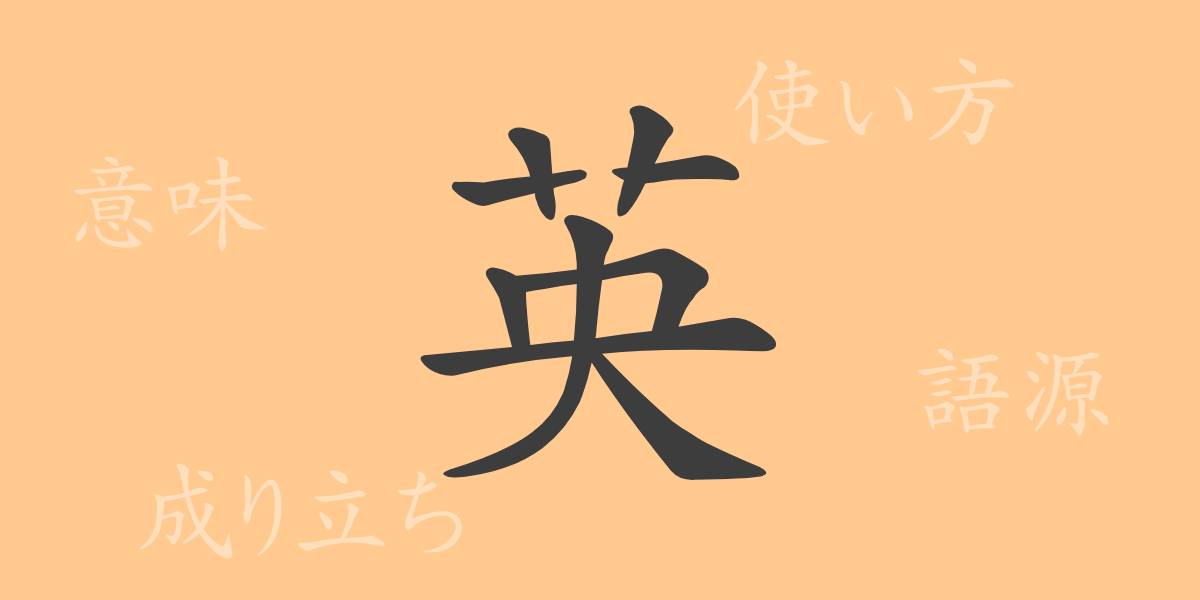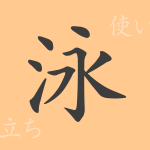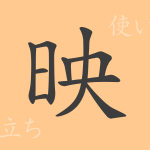“
The meaning and form of a single kanji character convey more to us than a mere letter. The common Japanese kanji “”英”” (Ei) is no exception. Used widely from business scenes to academia and everyday conversations, this kanji has a rich history and culture behind it. In this article, we delve into the charm of “”英,”” exploring its origin, meaning, usage, reading, and expressions using “”英.””
The Origin of 英 (Ei)
The kanji “”英”” is composed of the form “”艹”” ( Kusakanmuri), representing lush grass and flowers in ancient China, combined with “”鹿”” (roku), depicting the shining and gleaming of feathers. This beautiful image of nature later came to be used in expressions praising individuals, such as “”英雄”” (Eiyū, hero) and “”英明”” ( Eimei, wise). Also known as the “”英”” in England, this kanji has been passed down as a symbol meaning beautiful and excellent things.
The Meaning and Usage of 英 ( Ei)
The kanji “”英”” has meanings such as “”excellent”” and “”outstanding talent.”” It is widely used as a word to praise exceptional individuals or talents, particularly in compound words like “”英雄”” (Eiyū, hero) and “”英才”” (Eisai, genius). In business contexts, it is often used in forms like “”英知”” (Eichi, wisdom) and “”英断”” (Eidan, wise decision) to represent wise judgment and knowledge.
Reading, Stroke Count, and Radical of 英 ( Ei)
Let’s look at the details of how the kanji “”英”” is used in the Japanese language, including its reading and form.
- Reading: The on’yomi reading is “”エイ”” (Ei), and there is no specific kun’yomi reading.
- Stroke Count: 8 strokes in total.
- Radical: 艹 ( Kusakanmuri).
Compound Words, Idioms, and Proverbs Using 英 (Ei) and Their Meanings
There are various compound words and idioms using “”英”” in the Japanese language. Here, we will list a few examples and explain their meanings.
- 英雄 ( Eiyū): Refers to a person with exceptional talent or courage.
- 英才 ( Eisai): A person with outstanding talent.
- 英知 (Eichi): Superior knowledge or wisdom.
- 英断 (Eidan): A bold and good decision.
- 英名 ( Eimei): Widely known fame.
Conclusion on 英 (Ei)
The kanji “”英”” possesses beauty and excellent meaning in its form and sound. In the Japanese language, its usage is mainly seen in contexts praising people’s talents and actions. The image associated with this single character brings strength and vividness to our words through terms like hero and genius. By using expressions with “”英”” appropriately in daily communication, you can express respect and admiration for the other person.
“

























